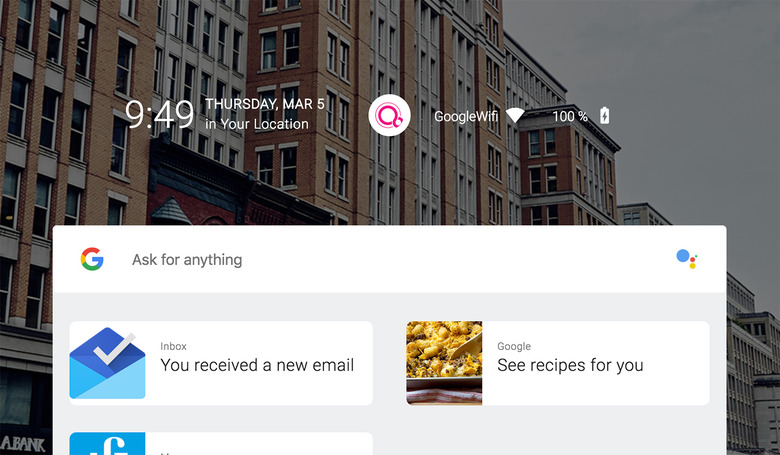Did Google Just Tell Us That It's Getting Rid Of Android?
Google hardly had any surprises left for its Pixel 3 event earlier this week, especially when it comes to the stars of the show, the Pixel 3 and Pixel 3 XL. Both phones were thoroughly reviewed before Google took the stage on Tuesday, so we already knew what to expect from Google's 2018 phones well in advance. But, as it turns out, Google left out a key element while introducing its latest toys, one that seems to support the idea that Android's death is imminent.
Android is the most popular mobile operating system out there, but Google didn't utter the word "Android" on stage even once. That's something you'd expect from Samsung's keynotes, not Google's. The company didn't talk about Android Pie while presenting the Pixel, and it didn't use the word while telling the world that its newest Chrome OS tablet will support millions of apps. Some may say that, after so many years of Android, it doesn't really matter if Google mentions it. But I'd disagree. This isn't a mistake, it's an intentional move from a company with a huge marketing department.
Google did make plenty of references to its software during the event but used keywords like "AI," "software," and "Chrome OS" when describing new Pixel 3 and Pixel Slate features. "Android" didn't come up. Even Rick Osterloh's blog post about Google's new products doesn't contain any Android reference, but you'll find Chrome OS in there.
![]()
Moreover, because it didn't want to mention Android during its announcement, Google didn't highlight one of the most important features of Pixel phones. Pixels are the only handsets in the world to get speedy Android updates.
Last October, Google did make it clear that Pixel 2 phones will run pure Android Oreo, telling buyers that they're always going to be the first to get OS and security updates.
A year later, Google may simply be preparing for the post-Android world, a future it's already building behind closed doors. Also relevant is the fact that Google just renamed the Android Messages app to something a lot simpler: Messages. The Messages app would run on any Google OS, not only Android.
What other OS could Google have? We've been talking about it for a while now. It's called Fuchsia, a dynamic operating system that would work on a variety of devices, including smartphones, tablets, laptops, and other form factors. Fuchsia would be a lot easier for Google to update and would support existing Android apps, various reports have revealed. Also, making apps for Fuchsia, and competing operating system, might be a lot easier for developer going forward, according to other reports.
We may still have to wait for a few years before Google unveils the OS that will replace Android, and possibly Chrome, but it sure looks like Google hardly wants to talk about Android right now.
